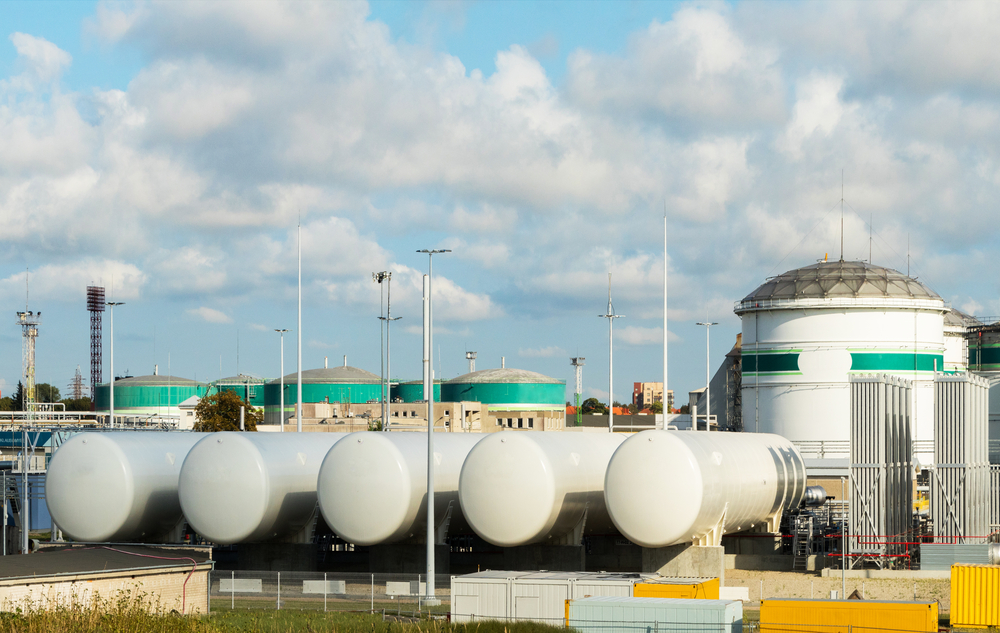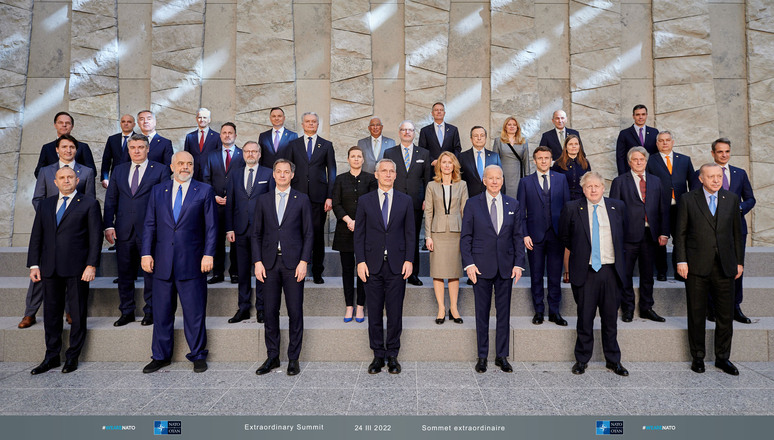On June 23-24, the European Council will consider Ukraine’s application for EU membership and conclude whether to grant Ukraine candidate status.
According to the procedure, the EU member states should make a unanimous decision after consulting the European Council and the European Parliament. Yet, granting Ukraine a candidate status does not mean it will join the EU. It opens the possibility of accession negotiations which may take 3-6 years with additional 1-2 years for the ratification.
The European Parliament has already supported granting Ukraine candidate status with the overwhelming majority of 637 MEPs (out of 705). Now, the European Commission is preparing its opinion on Ukraine’s application in respect of meeting membership criteria. It is expected that the European Commission will recommend granting Ukraine candidate status.
Still, the result of the EU summit is not guaranteed, and some member states may block the decision. However, there are some substantial reasons why the EU should grant Ukraine candidate status this June.
Reason I. Ukraine has achieved significant progress in meeting the criteria for EU candidate status
Before Ukraine submitted its application for EU candidate status on February 28, it had already made substantial achievements on the path of European integration.
- Ukraine started the European integration process more than two decades ago by initiating the approximation of Ukrainian laws to the EU legislation according to the Partnership and Co-operation Agreement signed in 1994.
- In 2005, Ukraine began to implement the Action Plan Ukraine – EU in the frame of the European Neighborhood Policy, which strengthened political and economical relations between Ukraine and the EU.
- The process of European integration greatly accelerated in 2014, when Ukraine signed the Association Agreement, which covers the majority of EU acquis.
- In 2016, Ukraine started implementing the Association Agreement’s provisions on Deep and Comprehensive Free Trade Area, which entails sectoral integration to the Single Market.
- By 2017, Ukraine implemented visa liberalization criteria which helped set up anti-corruption institutions and launch the judiciary reform. In the last 8 years, Ukraine made tangible progress in its implementation and approaching the Copenhagen criteria.
The progress in implementing the Association Agreement is annually assessed by the Ukrainian government and European Commission. According to the Ukrainian government, Ukraine implemented the Association Agreement by 63% as of the end of 2021. In recognition of the progress made by Ukraine, the European Commission prepared several decisions on Ukraine’s further integration into various sectors of the EU Single Market.
After receiving a questionnaire for EU candidate status from the European Commission on April 8, Ukraine managed to complete it just in one month amidst a war, while the same procedure took more than a year for some other applicant states.
Besides, Ukraine managed to fully synchronize its electricity system with the European ENTSO-E network despite the Russian invasion. Such progress became possible due to the institutional stability and effectiveness which was achieved by Ukraine largely due to the implementation of the Association Agreement.
According to the Centre for European Policy Studies in Brussels, Ukraine’s conformity with the Copenhagen Criteria is comparable to that of Western Balkans countries which have already been granted the status of EU candidates. This was made possible due to the fact that the EU–Ukraine Association Agreement entails deeper legislative adaptation and integration into the European Single market than corresponding agreements with the counties of the Western Balkans.
Reason II. Majority of citizens in the European Union and Ukraine support granting Ukraine an EU candidate status
Public opinion in EU countries shows historically high support for Ukraine’s entry to the EU.
An April 2022 survey of Eurobarometer, the official EU public monitoring tool, showed that 66% of EU citizens agree that “Ukraine should join the EU when it is ready” and 71% believe that Ukraine is part of the European family.
Ukraine’s society has supported the idea of Ukraine’s EU membership for a long time as well. At the end of March 2022, 91% of Ukrainians supported it.
All major political parties, including the parliamentary opposition, support the European integration of Ukraine, as do civil society organizations. Besides, the idea of Ukraine being a part of Europe is deeply rooted in Ukrainian culture, which manifests itself in the fact that Ukrainians largely interpret the current war as a fight for human dignity, individual freedom, and democracy – all those values which are the core of the European Union.
Reason III. Granting EU candidate status to Ukraine will strengthen democracy in Europe and the whole world
Granting an EU candidate status to Ukraine will show the EU’s leadership in asserting its values in face of Russia’s war of aggression. It will send a powerful signal to Russia, which is openly threatening the EU and the whole free world by oil and gas manipulations, artificial migration crises, inciting a global food crisis, cyber attacks, and nuclear blackmail.
In its war of aggression, Russia is aiming not only to eliminate Ukraine as a sovereign nation but also to weaken the European Union and the democratic world. Russia is openly supporting dictatorial regimes around the globe, seeing an existential threat in democratic neighbors.
By granting the EU candidate status to Ukraine, the EU will create a powerful framework for continuing institutional improvements in Ukraine, which will result in reinforcing Ukrainian democratic institutions, anti-corruption bodies, judiciary system, etc. Eventually, Ukraine will become a powerful ally of the EU states and significantly contribute to strengthening global democracy in face of rising dictatorial regimes.
Reason IV. An EU candidacy will be beneficial for EU businesses participating in Ukraine’s post-war reconstruction
After Ukraine wins the war, it will start rebuilding its economy and infrastructure. The process of large-scale reconstruction will involve support of many international partners and create opportunities for businesses willing to invest in Ukraine.
Granting the EU candidate status to Ukraine will create a robust framework that will help to make efficient use of the EU funds and contribute to the reliability of private investments. It will also accelerate the process of integrating the Ukrainian economy and infrastructure into the EU networks, which will be beneficial both for Ukraine and EU businesses.
Are there any reasons against?
In debates surrounding the issue of Ukraine's EU candidate status, one may often hear the following.
- "Ukraine does not fully meet the criteria for EU membership."
True, Ukraine does not fully meet the Copenhagen criteria for EU membership, but it is not applying yet to become an EU member, only an EU candidate. And it had done much more than other countries when they received this status. In 1999, Türkiye was granted candidate status despite the death penalty remaining at the time, which is a clear no-goer in the EU. And, as noted above, according to the Centre for European Policy Studies in Brussels, Ukraine has fulfilled as many criteria as the Western Balkans for being granted EU candidate status, if we are to compare the relevant conclusions of the European Commission on the Western Balkans -- North Macedonia (since 2005), Montenegro (2010), Serbia (2012), and Albania (2014). Bosnia and Herzegovina and Kosovo remain so-called "potential candidates" -- those who do not meet even the basic criteria. The reason for this is that Kosovo is not recognized by many EU member states and that Bosnia and Herzegovina, according to the 2019 European Commission, has a Constitution that does not meet European standards and has an incapable central government: it took 14 months to answer the European Commission questionnaire and could not provide an internally agreed answer to several questions.
- "Ukraine should not be given a 'fast track' for membership."
Right now the issue on the line is not membership, but only candidacy status for membership. The EU does not and cannot have any "fast track" or special procedure for Ukraine. It can only try to move quickly according to the usual procedure, which Ukraine is already doing. After receiving a candidate status, a decision should be made to start negotiations on 35 chapters, the political spheres that would adapt Ukrainian legislation to full compliance with the EU. After that follows the actual signing, ratification, and entry into force of the Treaty of Accession. So, Ukraine isn't expecting any "discounts" or "privileges" because of the war -- Ukraine objectively deserves candidacy here and now, because it meets the basic criteria, which it has worked towards meeting in the 20 years of its eurointegration.
- "Ukraine's candidacy is unfair to the Western Balkans, which have long received candidate status, but their EU accession talks have stalled."
Why should Ukraine suffer because North Macedonia was initially hampered by Greece (and eventually had to change its name from "Macedonia" to "North Macedonia") and is now blocked by Bulgaria (which demands to deny a separate Macedonian national identity and agree that North Macedonia and Bulgaria are "one people")?
- "Ukraine should not be admitted to the EU because it needs internal reform first."
It is difficult to understand what exactly is meant by the need for internal reform, but an issue that comes up increasingly more often is single EU member states like Hungary blocking EU decisions by a veto vote. These problems are easily solved if the principle of qualified majority voting, not consensus, is introduced, which removes fears that Ukraine could block EU decisions by a veto. But even if it joins the EU before the decision-making reform, other creative solutions might be sought. For instance, the vote of Ukraine in the EU Council may count by a qualified majority, but Ukraine will refrain from imposing a single veto. In any case, this is no reason to deny Ukraine candidate status now.
Bottom line
For the last two decades, Ukraine has proven its decisiveness by achieving substantial institutional transformation. Due to its progress in implementing the Association Agreement signed in 2014, Ukraine de facto meets the criteria for candidacy, which was recognized by the European Parliament. Both Ukrainian society and the EU citizens show firm support for Ukrainian accession to the EU. This new step in European integration of Ukraine will be mutually beneficial and strengthen the whole democratic world.
A version of this article previously appeared in LibMod
 Dmytro Shulga is director of the European program at International Renaissance Foundation, Ukraine.
Dmytro Shulga is director of the European program at International Renaissance Foundation, Ukraine.





